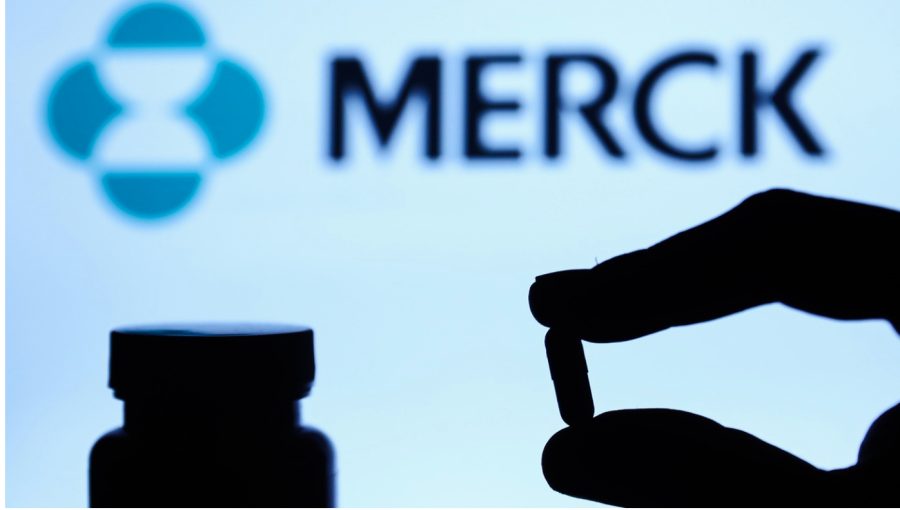COVID-19 treatment pill awaits approval
If authorized by the FDA, Molnupiravir could exist as the first oral antiviral treatment for the COVID-19 virus. This drug will likely reduce the risk of hospitalization or death for patients with mild or severe cases of COVID-19. With the new medicine on the way, the world will hopefully make its way back to normality.
October 20, 2021
As Americans steadily integrate back into their normal lives, the Coronavirus continues to affect a handful of citizens. The most effective preventatives include face masks and vaccinations, which remain readily available in local areas. Although the likelihood of contracting the virus with the assistance of these protections proves extremely low, breakthrough cases occur nonetheless. Depending on one’s age and overall health, individuals react differently when infected with the virus, which puts several lives in jeopardy. Fortunately, pharmaceutical company Merck & Co submitted an application for its pill, molnupiravir, to the FDA after announcing that the pill reduces the risk of hospitalization and death by nearly half.
Health experts have emphasized the need for a handy pill since the outbreak began. Scientists attempted to create a supplement akin to Tamiflu, a 20-year-old flu treatment that reduces the severity of symptoms by a day or two. Not only will the oral treatment assist high-risk groups if approved, but it will also significantly protect students and staff at NC. Although COVID-19 originally affected elderly populations, in particular, the Delta Variant causes younger populations to get incredibly sick as well.
Due to the high abundance of students attending NC, the disease spreads much faster than the average school population. The infection of COVID-19 results in 10 or more days of absence from school, which immediately puts students at a disadvantage. Although the world desires a sense of normalcy, health officials claim that the health of citizens trumps everything.
“This treatment pill would positively affect students who are especially vulnerable and susceptible to getting covid as it lowers the risk of hospitalization. As young students, we are naturally better protected against COVID-19, but having this medication is another way to keep us okay alongside the vaccine. I would feel safer knowing that there is a lower chance of me and high risk people around me getting extremely sick if somebody around us contracted covid because it’s less stressful knowing there is a successful medication out there”, NC magnet junior Claire Scafidi said.
Understandably, people express their skepticism and concern about the treatment, due to the unfamiliarity of it. Similar to the Coronavirus vaccine, FDA approval will likely persuade the public to participate in the consumption of a COVID-19 treatment pill. If proven effective by the FDA, the pill should greatly minimize the caseload in the United States, as well as reduce outbreaks in third-world countries with weaker health care systems.
“FDA approval is the threshold that needs to be passed for many people to ease skepticism about the pill…[And] it was the same for the vaccines; once the FDA approved them, the more people felt safe about getting the vaccine and I think it will be the same case with the pill. But another thing with the vaccine is that before they got FDA approval, politicians were claiming that FDA approval is the last thing needed before the numbers of people getting the vaccine will skyrocket and that just didn’t happen. There are still skeptical people out there and I feel like it will also be the case with the pill”, NC magnet junior Jerrica Arnett.
Based on the findings of the COVID-19 vaccine, FDA approval put people at ease and changed the minds of most. However, the pill remains mysterious and unknown to most, therefore they will likely remain skeptical. Although the antiviral COVID-19 treatment pill comes with an abundance of uncertainties and unexplored factors, like ingredients or long-term side effects, it holds the potential to have a significant influence on those who remain negatively impacted by the ongoing pandemic.






